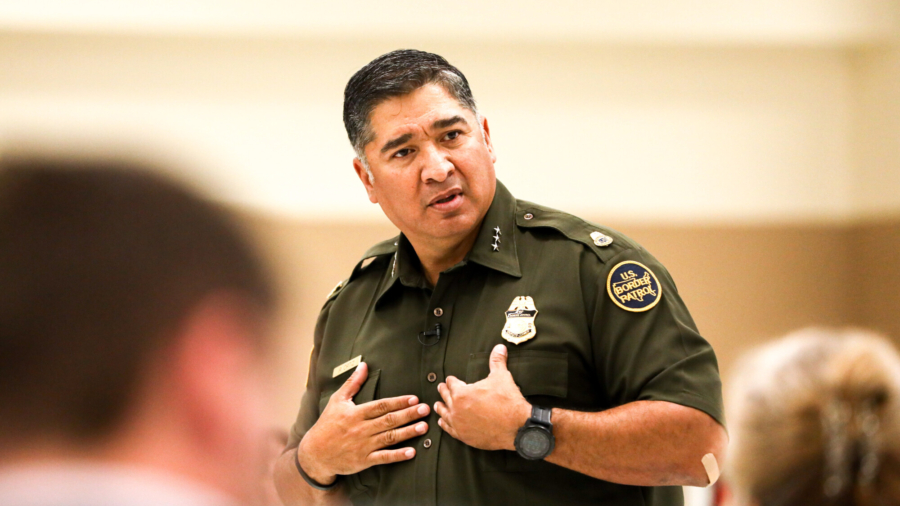Raul Ortiz, the outgoing top U.S. Border Patrol Agent, said he would have preferred more border wall construction, more personnel to patrol the border, and more consequences to disincentivize crossing attempts.
Ortiz recently announced he plans to retire from the Border Patrol, notifying agents that June 30 would be his last day. The border security official joined NewsNation host Chris Cuomo on Tuesday to discuss the current situation at the border and his decision to leave. Cuomo asked Ortiz to describe the border security decisions he would have pursued if he had a blank check and absolute say over border security policy.
“One of the things I think we need to continue to invest in is infrastructure across the southwest border, technology, roads,” Ortiz began his response. “In some areas, we need to continue to build some wall.”
Some sections of the border have steel bollard fencing and vehicle barriers, but large sections of the border remain open. President Donald Trump made wall construction a key component of his 2016 campaign and early presidency, but his 2020 opponent, Joe Biden, vowed “there will not be another foot of wall constructed in my administration.”
Biden indeed halted Trump-era wall construction as one of his first moves in office, but has resumed some border wall construction. When asked about efforts to close gaps along the Arizona border last year, White House Press Secretary Karine Jean-Pierre said the new construction amounted to the Biden administration “cleaning up the mess” left by the Trump administration.
In addition to calling for some renewed wall construction Ortiz called for bolstering Border Patrol’s ranks.
“I’ve got roughly 3,000 less personnel than I had in 2013,” Ortiz told Cuomo. “That’s not a recipe for success.”
Ortiz also called for instilling real consequences to deter illegal immigrants from all over the world.
“We have migration from a slew of 173 different countries so far, and if our State Department and our partners aren’t working to instill some consequences for some of these demographics, we’re not going to be able to repatriate them. And they’re going to continue to come,” he said. “This isn’t just a U.S. southwest border problem. We’re seeing traffic increases on the northern border in Vermont. We’re seeing it in Puerto Rico. We’re seeing it in southern Florida. And so, this continues to be a challenge for us.”
Title 42 and Retirement
Ortiz’s retirement announcement came shortly after the Biden administration ended Title 42 on May 11. Title 42 was a COVID-19-era immigration policy that allowed border officials to rapidly turn away and expel illegal immigrants from the United States.
Border officials and communities had braced for a surge in border crossings without Title 42 in place; however, the U.S. Customs and Border Protection (CBP) recently reported the total number of border encounters was 15 percent lower this May than in May of 2022.
Border Patrol reported apprehending 98,850 individuals illegally crossing between ports of entry along the Southwest border between May 1 and May 11. Border Patrol agents recorded another 70,394 illegal border-crossers from May 12 to the end of the month, for a total of 169,244 people in May.
Ortiz told NewsNation that Border Patrol expects to apprehend around 90,000 people crossing between the official ports of entry in June.
“We haven’t seen a number that low since 2020,” Ortiz said.
CBP data shows the Border Patrol agents apprehended 71,141 people in December of 2020, the busiest month for Border Patrol that year. By comparison, Border Patrol agents apprehended just 16,182 people in April of 2020 after the Trump administration implemented the Title 42 policies at the start of the COVID-19 outbreak in the United States.
“I feel like we’ve got the border in as managed a state as we’ve had it in years. And so, if any time, after 32 years I do think it’s a good time to pull the plug,” Ortiz said of the timing of his retirement decision.

